Strategic Analysis Caucasus Brief
Monthly review of January 2024
Tomáš Baranec
Armenia
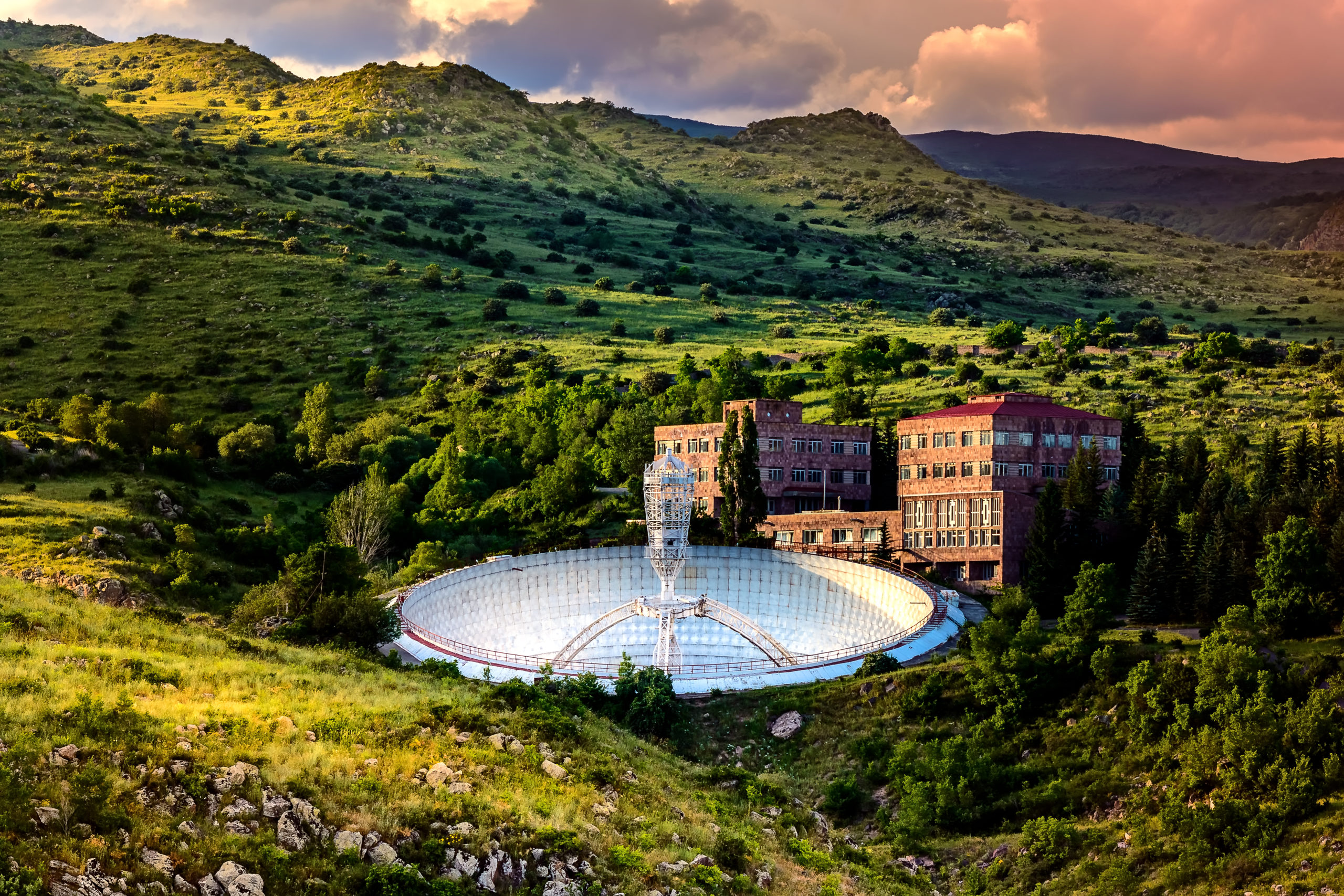
Mirror Radio Telescope, Armenia. Photo: Shutterstock.com
Controversy after Armenian Catholicos’ New Year speech not aired on the public TV
Breaking with a decades-long tradition, Armenia’s state television did not broadcast a New Year’s Eve address by Catholicos Karekin II, the supreme head of the Armenian Apostolic Church, increasingly at loggerheads with Prime Minister Nikol Pashinyan.
The annual addresses by Karekin II and his two predecessors, followed by similar speeches delivered by the incumbent president or prime minister of the republic, had aired shortly before midnight on December 31 since 1990.
“The public television company informed at the last minute that they would not be broadcasting His Holiness the Catholicos’s New Year’s message before midnight as it had been traditionally done. They did not provide any reason for this change. Instead, they proposed to present the Patriarch of All Armenians’s address during the evening edition of the News. However, this proposal was inappropriate for the Mother See and was rejected,” the Church’s Echmiadzin-based Mother See said late on Sunday.
According to Public TV, the speech of the Catholicos was meant to follow the speech of the President of Armenia, who is the head of the state as per the Constitution. However, on December 31, Father Vahram Melikyan, representing the Mother See, informed the Public Broadcaster Council that they disagreed with the scheduled time for the speeches. They demanded that the speeches not be broadcast and the video recording of the Catholicos’ address not be used since the speech’s copyright belonged to the Mother See.
According to Boris Navasardyan, the honorary president of the Yerevan Press Club, any changes in traditions should only be made based on public opinion and studies of possible consequences. He stated that the Public TV company’s representatives’ claims that the broadcasting of the New Year’s address of the Catholicos is subject to legislative regulation could have been accepted if they had devised such an initiative in advance and made it the subject of multi-faceted discussions. They should have maintained the rooted practice until the actual completion of the law.
The apparent snub drew strong condemnation from some senior clergymen and many opposition and public figures. They accused Pashinyan of ordering the country’s leading TV channel, run by his loyalists, not to air Karekin’s speech right before his televised remarks.
As Azatutyun noted, Pashinyan’s relationship with the ancient Church, to which the vast majority of Armenians belong, has increasingly deteriorated in recent years, especially since the 2020 war in Nagorno-Karabakh. Karekin and other senior clergymen joined the Armenian opposition in calling for Pashinyan’s resignation following Armenia’s defeat in the six-week war.
Pashinyan and other senior Armenian officials have boycotted Christmas and Easter liturgies led by Karekin for the past three years. In May 2023, the premier accused the Church of meddling in politics, prompting a scathing response from Karekin’s office.
Tensions between the government and the Church rose further in early October when Karekin blamed Pashinyan for Azerbaijan’s recapture of de facto Nagorno-Karabakh and the resulting mass exodus of the region’s ethnic Armenian population. The Church repeatedly condemned Pashinyan for recognising Azerbaijani sovereignty over de facto Karabakh before Baku’s September 19-20 military offensive.
Sources:
-
MARTIROSYAN Tigranuhi, Media.am, “Public TV Breaks Tradition: New Year’s Eve Without Catholicos’s Speech”, https://media.am/en/newsroom/2024/01/06/37365/
-
GALSTIAN Shoghik, Azatutyun.am, “Armenian Church Head’s New Year Address Not Aired By State TV”, https://www.azatutyun.am/a/32756257.html
-
The Armenian Weekly, “The Message of His Holiness Karekin II Catholicos of All Armenians on the New Year”, https://armenianweekly.com/2024/01/09/the-message-of-his-holiness-karekin-ii-catholicos-of-all-armenians-on-the-new-year/
Controversy in Yerevan: Neo-Nazi group marks Garegin Nzhdeh’s birthday amid condemnation
On January 1, a deserted demonstration took place in Yerevan to commemorate the birthday of Garegin Nzhdeh, an Armenian figure convicted of collaborating with Nazi Germany during World War II. The participants, identified as Neo-Nazis from the movement Hosank, marched through the streets chanting the “Sieg Heil” slogan.
After the demonstration, Hayk Nazaryan, the movement’s leader, stated that the National Security Service had summoned him for a conversation. “I will go during the day,” he noted. However, this post was later deleted from the page.
On January 2, Nazaryan noted that his first speech opened a new page in Armenia’s political environment and Armenian history. “But it will not be the last. We will come to Armenian politics, we will laugh at our enemies, we will destroy those who hate us,” he added.
According to Caucasus Watch, Hosank movement is trying to transform the ideology of “Tsegachronism” into a militant movement and to gain the power to create a racial-religious state based on Aryan ideas. “This is the only way to have a prosperous economy, a prosperous society, and a victorious army,” the movement’s website states.
Nazaryan, the movement’s leader, is 34 years old and was born in California. He graduated from California State University with a master’s degree in physics. He has been living in Armenia since 2016.
Previously, Nazaryan has been given multiple opportunities to speak through Armenian mass media. In 2018, Public TV Company produced a report about him, highlighting that Nazaryan was the first American-Armenian to sign a contract with the Armenian Armed Forces and relocate to serve in the army. In the report, he discusses Garegin Nzhdeh, displaying pictures and books about him in the room. The Armenian sign of eternity and images of Nzhdeh are also visible.
As Caucasus Watch reminds, Garegin Nzhdeh, born Garegin Ter-Harutyunyan (1886–1955), was an Armenian military commander and statesman. He played a significant role in the early 20th-century history of Armenia. Nzhdeh was involved in the Armenian national liberation movement and fought in various battles during the turbulent times of the First World War. Nzhdeh was a crucial figure in the defense of the Republic of Mountainous Armenia, an independent Armenian state that emerged after World War I. He also played a role in establishing the First Republic of Armenia in 1918. Later in his life, Garegin Nzhdeh became associated with nationalist and fascist ideologies. He spent time in different countries, including Bulgaria and Nazi Germany, where he collaborated with the Axis powers during World War II. After the war, he was arrested by Soviet authorities and died in captivity in 1955. Nzhdeh is celebrated as a national hero in Armenia for his contributions to the early Armenian independence movement.
Sources:
-
Caucasus Watch, “Controversy in Yerevan: Neo-Nazi Group Marks Garegin Nzhdeh’s Birthday Amid Condemnation”, https://caucasuswatch.de/en/news/controversy-in-yerevan-neo-nazi-group-marks-garegin-nzhdehs-birthday-amid-condemnation.html
-
SIMONYAN Ophelia, Media.am, “The Response To The ‘Neo-Fascist’ March In Yerevan”, https://media.am/en/verified/2024/01/11/37437/
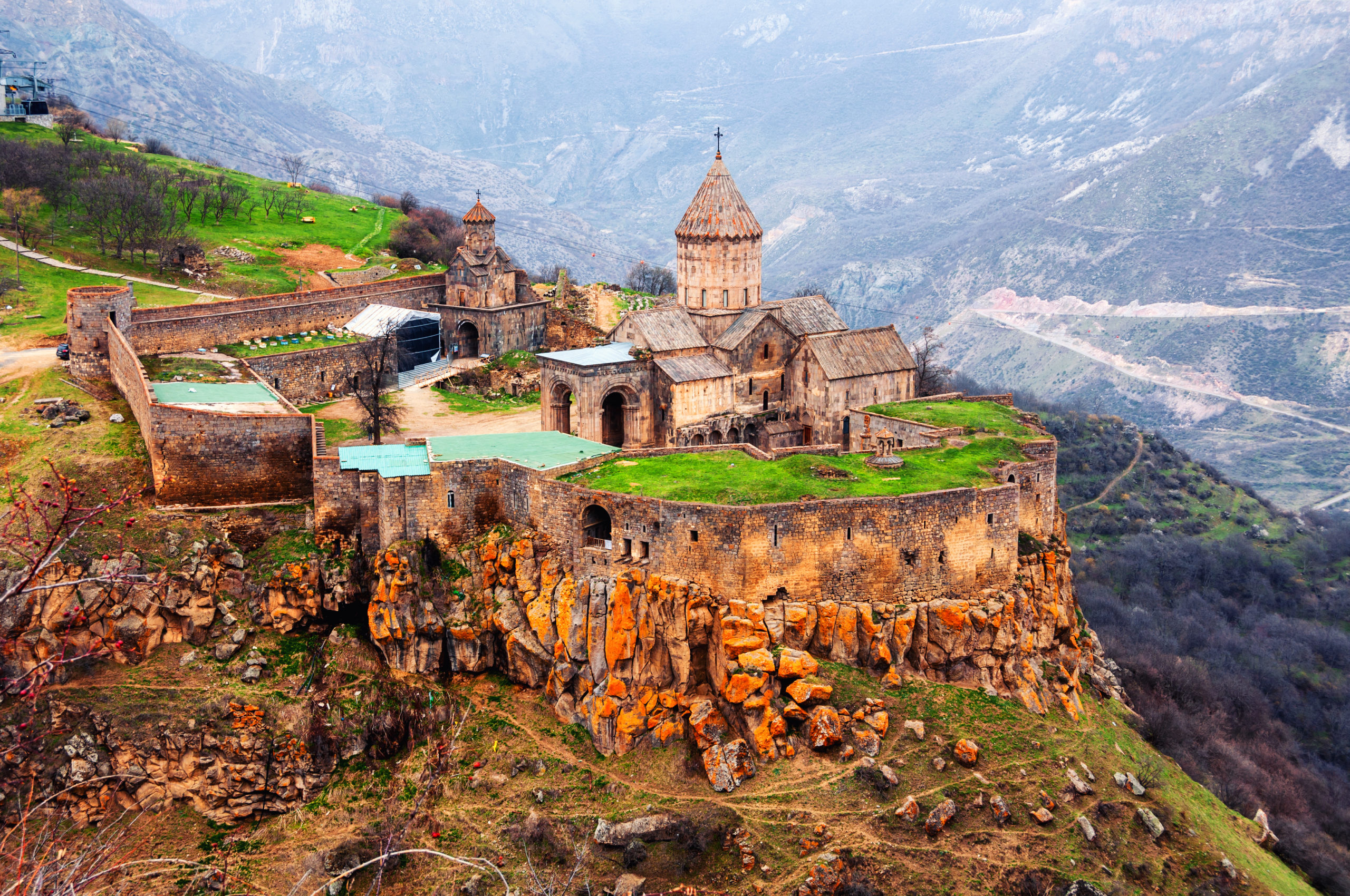
Tatev, Armenia. Photo: Shutterstock.com
Armenia’s PM Pashinyan urges for a new Constitution reflecting geopolitical changes
Armenian Prime Minister Nikol Pashinyan emphasised the necessity for Armenia to adopt a new constitution that aligns with the “new geopolitical environment” in the region, according to statements publicised on January 19.
“The Republic of Armenia needs a new constitution, not constitutional changes. We must have a constitution that will make Armenia more competitive and viable in the new geopolitical and regional environment,” Pashinyan told senior officials from the Armenian Ministry of Justice, as cited by Caucasus Watch.
He did not provide specific details about the content of the envisioned new Constitution, but he highlighted that it should preserve Armenia’s parliamentary system of government.
During a meeting with his party in Yeghegnadzor on January 20, Pashinyan elaborated that Yerevan and Baku had reached a point in peace talks where they wanted “additional guarantees” that neither party “harbours territorial claims and hidden ambitions”.
“Diplomatic texts always have different twists, subtexts, and footnotes. In the footnotes of Azerbaijan’s proposals, and perhaps Azerbaijan in ours, observe the dangers of territorial claims, if not today, then in the future,” Pashinyan said.
Earlier, some Armenian analysts speculated that Pashinyan’s call for a new constitution might align with demands made by Azerbaijan, particularly those related to preventing Armenian claims on Nagorno-Karabakh, as indicated in its current Constitution.
Various media outlets and social media reminded Azerbaijani President Ilham Aliyev of Aliyev’s 2021 interview. In that interview with Turkish Anadolu Ajansı on September 27, 2021, Aliyev suggested that “Armenia should change its constitution to abandon territorial claims against Turkey.”
“There are territorial claims against Turkey in the Constitution of Armenia. They should renounce it. They need to work out and adopt a new constitution. How can a weak country like Armenia make a territorial claim against a giant country like Turkey? They should also abandon their claims against Azerbaijan to normalise relations with the country,” the Azerbaijani leader said.
The first paragraph of Armenia’s Constitution states the country adopted the Constitution is based on the “fundamental principles of the Armenian Statehood and the nation-wide objectives enshrined in Armenia’s Declaration of Independence”.
According to analyst Tigran Grigoryan: “when Aliyev announced on December 6 that Baku expects guarantees from Yerevan that Armenian revanchism will not rise in the future, he meant a change to the normative legal foundation of its statehood.” One of the bases expressed in the declaration is a joint decision by the Armenian Soviet Socialist Republic and the Karabakh Council to “reunify the Armenian SSR and the Mountainous Region of Karabakh”, stressed OC Media.
Sources:
-
Caucasus Watch, “Armenia’s PM Pashinyan Urges for New Constitution Reflecting Geopolitical Changes”, https://caucasuswatch.de/en/news/armenias-pm-pashinyan-urges-for-new-constitution-reflecting-geopolitical-changes.html
-
BARSEGHYAN Arshaluys, OC Media, “Pashinyan says Armenia ‘needs new constitution’”, https://oc-media.org/pashinyan-says-armenia-needs-new-constitution/
-
Civilnet.am, “Pashinyan says Armenia needs a new Constitution, but why?”, https://www.civilnet.am/en/news/762354/pashinyan-says-armenia-needs-a-new-constitution-but-why/
Yerevan: Russian-Armenian arms supply issues “Mostly settled”
After repeated delays, Russia has delivered to Armenia the first batch of weapons envisaged by bilateral defence contracts signed after the 2020 war in Nagorno-Karabakh, according to senior Armenian lawmakers.
The announcement was made on January 16 not by Armenia’s Defense Ministry or military brass but rather by Gagik Melkonyan, a member of Prime Minister Nikol Pashinyan’s Civil Contract party who sits on the parliament’s defence commission.
On January 22, the Armenian Defense Ministry as well signalled significant progress in implementing multimillion-dollar defence contracts with Russia.
In a short statement to RFE/RL’s Armenian Service, the ministry said that “contentious issues” with Russian arms manufacturers have been “mostly settled.” Some of those issues remain unresolved, though, it added without giving any details.
According to Armenian officials, the statement did not explicitly refer to the contracts for the delivery of Russian weapons worth 400 million USD. The latter repeatedly complained last year that the Armenian military has still not received any of those weapons.
Two senior Armenian lawmakers revealed earlier this month that Russia has shipped the first batch of that military hardware. However, they did not specify the types of weaponry commissioned and/or received by Yerevan.
Prime Minister Nikol Pashinyan and his political allies have repeatedly complained about those delays amid Armenia’s worsening relations with Russia. Deputy Defense Minister Hrachya Sargsyan said in early December that Yerevan paid Russia’s state-owned arms manufacturers 400 million USD but has still not received any military equipment so far.
Russia has long been Armenia’s principal supplier of weapons and ammunition. Earlier, Yerevan acquired them at domestic Russian prices, set below international market-based levels, and even for free.
With no end in sight to the war in Ukraine and tensions between Moscow and Yerevan continuing to grow, the Armenian government is increasingly looking for other arms suppliers. Since September 2022, it has reportedly signed several defence contracts with India worth at least 400 million USD. In October 2023, it also signed two arms deals with France.
Sources:
- Asbarez.com, “Russian Weapons Reportedly Arrive in Armenia, Lawmaker Says”, https://www.asbarez.com/russian-weapons-reportedly-arrive-in-armenia-lawmaker-says/
- STEPANIAN Ruzanna, Azatutyun.am, “Armenia Reports First Delivery Of ‘Delayed’ Russian Weapons”, https://www.azatutyun.am/a/32776633.html
- GALSTIAN Shoghik, Azatutyun.am, “Russian-Armenian Arms Supply Issues ‘Mostly Settled’”, https://www.azatutyun.am/a/32786908.html
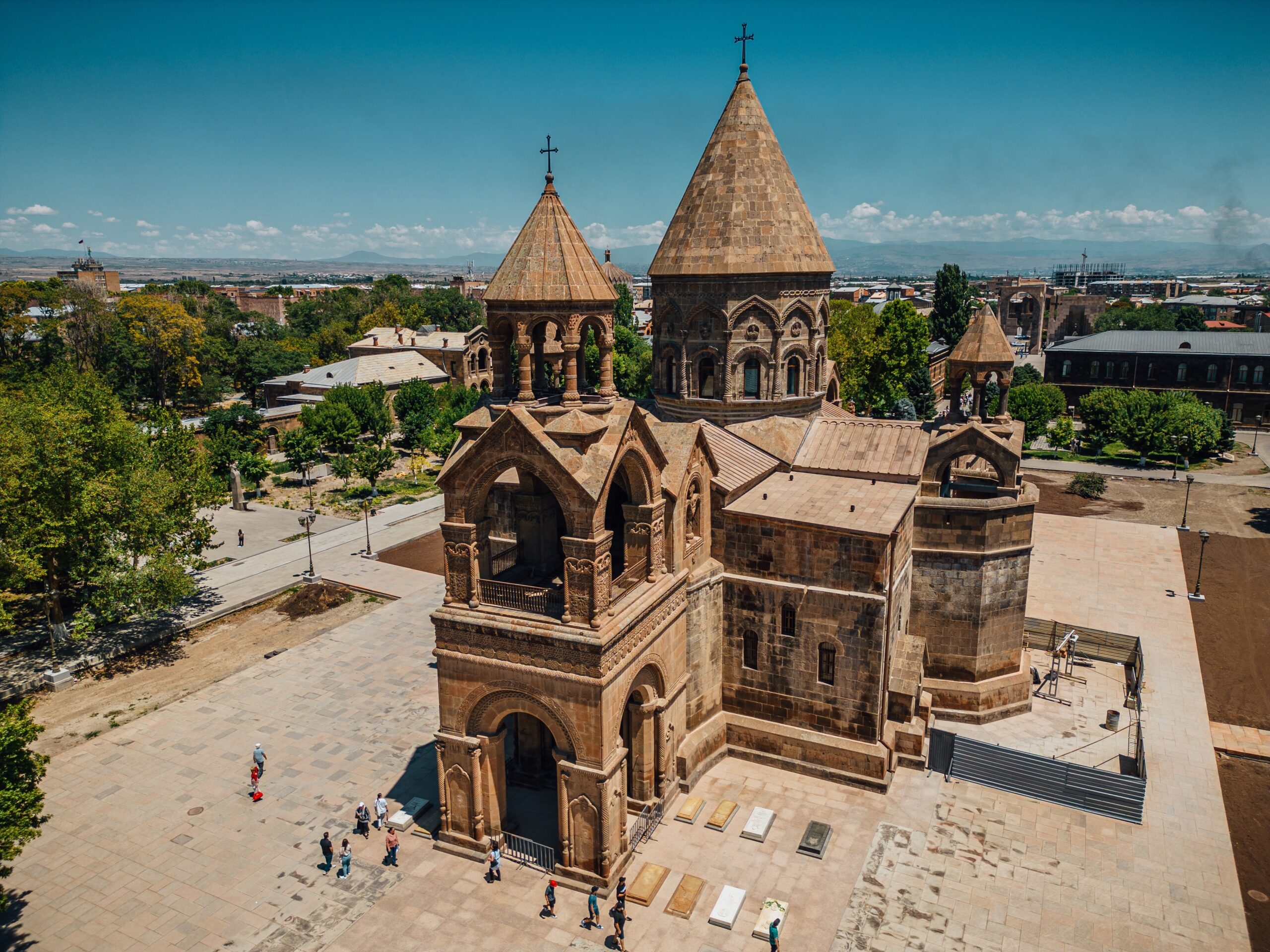
Armenian Old Castle. Photo: Shutterstock.com
Armenia greenlights controversial Amulsar gold mine
On January 18, Armenia approved a deal to restart the controversial Amulsar gold mine project that has faced several legal and environmental challenges over the years, reported Hetq.am.
The deal, first announced in February 2023, specifies that Armenia will partner with Lydian Armenia in implementing the Amulsar project and, in return, will receive 12.5% of the company’s authorised capital free of charge.
Lydian, in turn, will pay 7 million USD a year in financial assistance to communities in the Amulsar region during the construction period. The Eurasian Development Bank (EDB) will extend a loan of up to 100 million USD in addition to 150 million USD mobilised by Lydian to finance the completion of construction. Armenian Deputy Economy Minister Ani Ispiryan touted the deal as a win-win for Armenia and Lydian. Armenia will invest 250 million USD in the operation of the mine.
The Amulsar gold mine is Armenia’s second-largest gold mine in terms of pure gold reserves. It is situated in the country’s southeast, 13 kilometres from the resort town of Jermuk, nestled between the Arpa and Vorotan rivers. The deposit is estimated to contain approximately 31 million tons of ore and 40 tons of pure gold.
Lydian Armenia, established in 2005 as a 100% subsidiary of Lydian Canada Ventures, is owned by the US-based Orion Mine Finance and Canada’s Osisko Gold Royalties. In the past, protests from environmentalists and nearby community residents have hindered the full development of the Amulsar deposit.
Sources:
- GADARIGIAN Hrant, Hetq.am, “Armenia Approves Deal to Restart Controversial Amulsar Gold Mine Project”, https://hetq.am/en/article/163621
- BARSEGHYAN Arshaluys, OC Media, “Armenia greenlights controversial Amulsar gold mine”, https://oc-media.org/armenia-greenlights-controversial-amulsar-gold-mine/
- Massis Post, “Armenian Government Granted 12.5% Minority Stake in Amulsar Gold Mine”, https://massispost.com/2024/01/armenian-government-granted-12-5-minority-stake-in-amulsar-gold-mine/
Norway’s state oil company has sold its stakes in Azerbaijani oil fields and pipelines to Azerbaijan’s SOCAR
Norway’s national oil company Equinor has announced that it has sold its shares in two Azerbaijani oil fields and the Baku Tbilisi Ceyhan oil pipeline to Azerbaijan’s state oil company SOCAR and will exit from Azerbaijan after 30 years in the country.
“Equinor is in the process of reshaping its international oil and gas business, and the divestments in Azerbaijan are in line with our strategy to focus our international portfolio,” said Philippe Mathieu, Equinor’s executive vice-president for international exploration and production, in a statement released on December 22.
Equinor declined to provide the price, but a spokesperson said the company would record a loss from the transaction in the range of 300 million USD to 400 million USD as the book value exceeded the transaction’s size.
The oil field assets consist of a 7.27 per cent stake in Azerbaijan’s giant Azeri-Chirag-Guneshli (ACG) oil field, which produces the bulk of Azerbaijan’s oil exports and a 50 per cent stake in the much smaller Karabakh oil field, which has yet to start production (both oil fields are in the Caspian Sea).
In addition, Equinor is selling its 8.71 per cent stake in the Baku-Tbilisi-Ceyhan (BTC) oil pipeline, which runs from the Caspian through Azerbaijan and Georgia to Turkey’s Mediterranean oil hub at Ceyhan, through which most of Azerbaijan’s oil exports are made.
The purchase by SOCAR takes the state-owned company’s stake in ACG to 32.27 per cent and in the BTC pipeline to 33.71 per cent and gives it complete ownership of the ACG oil field.
According to Eurasianet.org, the timing of the sale suggests that Equinor is selling at a point when it believes it can get the best price from the sale. Crude oil prices are still higher than they have been for most of the past decade thanks to the disruption to global oil markets caused first by Russia’s full-scale invasion of Ukraine two years ago and more recently by Israel’s invasion of Gaza and the attacks on international shipping in the Red Sea.
Similarly, security concerns for the safety of shipping in the Black Sea in the wake of the Russia-Ukraine conflict have disrupted the flow of crude oil through the three pipelines which carry crude oil from the Caspian to the Black Sea. Last year, BP halted crude oil exports from Azerbaijan via its Baku-Supsa pipeline, exporting the oil via the BTC pipeline instead.
The decision by SOCAR to purchase all of Equinor’s assets suggests Baku is intent on both maximising its returns from its primary export revenue earner and keeping close control of its main oil export route. Azerbaijan’s crude oil and natural gas exports are the country’s main source of revenue, accounting for around 90 per cent of export revenue and funding as much as 60 per cent of the state’s annual budget. Hydrocarbons also supply 98 per cent of the country’s primary energy usage and generate around 90 per cent of its electricity.
Sources:
-
O’BYRNE David, Eurasianet.org, “Norway’s Equinor to leave Azerbaijan”, https://eurasianet.org/norways-equinor-to-leave-azerbaijan
-
Reuters, “Equinor sells Azerbaijan assets, eyes loss of up to $400 mln”, https://www.reuters.com/markets/deals/equinor-sells-azerbaijan-assets-socar-2023-12-22/
Kazakhstan reports significant increase in oil exports via Aktau Port, boosting trans-Caspian corridor transportation
On January 12, the company “Kaztransoil” reported that last year, the export of Kazakh oil from the port of Aktau on the eastern shores of the Caspian Sea amounted to 3 million 376 thousand tons, which is 1 million 108 thousand or 48.9 per cent more than in 2022.
According to the information, the volume of oil exported by “Kaztransoil” from the “Tengiz” field located in the Kazakh sector of the Caspian Sea to the port of Aktau in the direction of the Baku-Tbilisi-Ceyhan pipeline has increased from 205 thousand tons to 1 million 392 thousand tons in the last year. This is 5.5 times more than the indicator of 2022. In addition, 1 million 984 thousand tons of oil were sent from the port of Aktau to the port of Makhachkala in the reporting period.
It should be noted that two years ago, the President of Kazakhstan, Kassym-Jomart Tokayev, ordered to increase oil transportation through the Trans-Caspian Corridor. By this order, an agreement was signed between KazMunayGaz and the State Oil Company of Azerbaijan on the transportation of 1.5 million tons of oil from the Tengiz field to the Baku-Tbilisi-Ceyhan pipeline.
Previously, Azerbaijani Energy Minister Parviz Shahbazov said deliveries via the Baku-Tbilisi-Ceyhan pipeline from Kazakhstan will amount to 1.1 million tons of oil by the end of 2023. “Every month, Azerbaijan receives 12 to 14 tankers transporting Kazakh oil. This is a satisfactory development—the initial agreement between the parties provided for the transportation of 1.5 million tons of oil this year. However, given that deliveries began in April this year, we will be able to transport 1.1 million tons of oil by the end of 2023,” he said.
Sources:
- Caucasus Watch, “Kazakhstan Reports Significant Increase in Oil Exports via Aktau Port, Boosting Trans-Caspian Corridor Transportation”, https://caucasuswatch.de/en/news/kazakhstan-reports-significant-increase-in-oil-exports-via-aktau-port-boosting-trans-caspian-corridor-transportation.html
- Azer News, “KazTransOil boosts oil transit from Aktau port to Baku”, https://www.azernews.az/business/220336.html
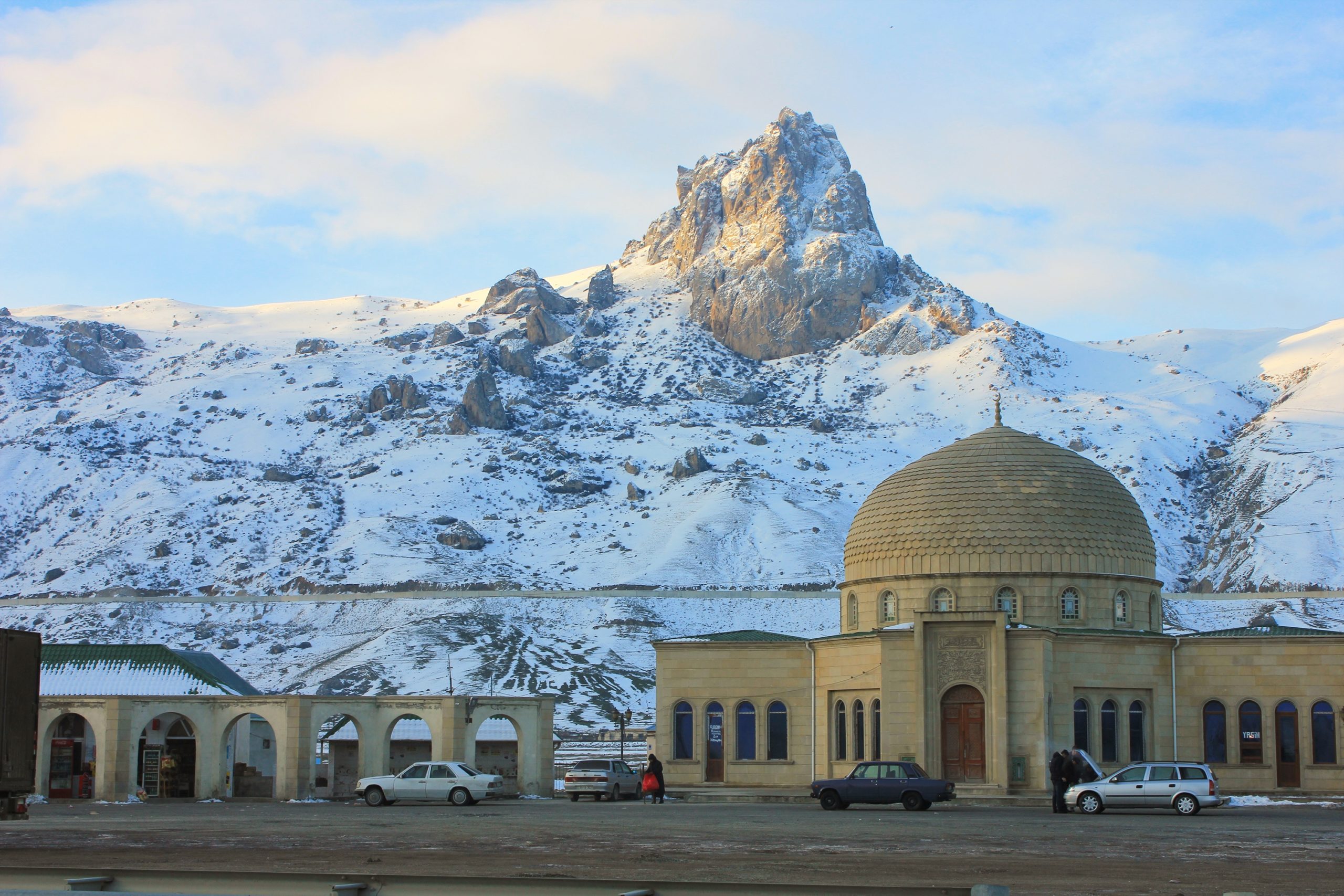
Baku, Azerbaijan. Photo: Shutterstock.com
Azerbaijan detains 10th media worker ahead of elections
Azerbaijani police have detained journalist Shahin Rzayev near his home in Baku, making him the 10th media worker to be detained in the country since late November last year, informed the OC Media. Political observer of the regional publication JAMnews left the house at about two o’clock in the afternoon on January 15, and after that, he stopped communicating, his relatives said.
Later, it turned out that he was detained by the police and arrested for 15 days under Article “Petty Hooliganism” of the Code of Administrative Offences. Ibrahim Amiraslanli, a spokesperson for the ministry, told the media that Rzayev was shouting obscenities in public at the time of his arrest. He stated that a police officer detained the journalist after he had refused to stop swearing.
Rzayev has denied the charges against him, while his family asserts that he was detained because of a Facebook post he had written and then deleted. Rzayev specialises in conflict journalism, having previously been the director of the Institute of War and Peace Reporting in Azerbaijan until it ceased its operations in the country in 2016. Rzayev is the latest media worker to be targeted by Baku in its ongoing crackdown on the press, beginning with the raid of Abzas Media and the arrest of several of its employees in late November.
He was also the second journalist to be arrested on January 15; Elnara Gasimova, a journalist associated with Abzas Media, was arrested and remanded to two months and 17 days pre-trial detention on smuggling charges.
Azerbaijan has arrested ten media workers since late November as the country prepares for upcoming presidential elections in early February 2024. International press freedom groups have demanded the release of the Abzas Media staff, describing the arrests as an attempt to silence their anti-corruption reporting.
Sources:
-
Aghayev Ismi, OC Media, “Azerbaijan detains 10th media worker ahead of elections”, https://oc-media.org/azerbaijan-detains-10th-media-worker-ahead-of-elections/
-
VOA News, “Azerbaijan Arrests Journalist, Charges Another as Press Crackdown Continues”, https://www.voanews.com/a/azerbaijan-arrests-journalist-charges-another-as-press-crackdown-continues/7440998.html
-
Turan.az, “Journalist Shahin Rzayev arrested”, https://turan.az/en/politics/journalist-shahin-rzayev-arrested-776290
Facing expulsion, Azerbaijan quits the Council of Europe parliamentary body
The Parliament Assembly of the Council of Europe (PACE) refused to ratify the credentials of the Azerbaijani delegation this year, citing the country’s poor human rights and democracy record. Anticipating the result of the vote, Azerbaijan’s delegation itself withdrew from PACE a few hours earlier, citing what it called “racism, Azerbaijanophobia, and Islamophobia,” writes Eurasianet.
“Very serious concerns remain as to [Azerbaijan’s] ability to conduct free and fair elections, the separation of powers, the weakness of its legislature vis-à-vis the executive, the independence of the judiciary and respect for human rights, as illustrated by numerous judgments of the European Court of Human Rights and opinions of the Venice Commission,” the Assembly said in a resolution, based on a report by Mogens Jensen (Denmark, SOC). The resolution was adopted today with 76 votes in favour, 10 against and four abstentions.
The Assembly also cited the situation in de facto Nagorno-Karabakh, noting that Azerbaijan’s leadership “did not acknowledge the very serious humanitarian and human rights consequences” stemming from the lack of free and safe access through the Lachin Corridor and recalling its condemnation of the September 2023 military operation “which led to the flight of the entire Armenian population of Nagorno-Karabakh to Armenia and allegations of ‘ethnic cleansing’.”
The resolution also accused Baku of refusing to cooperate with PACE, noting that the organisation’s monitoring rapporteurs were not allowed to meet political prisoners and were not invited to observe the snap presidential election scheduled for next month.
In their turn, Azerbaijani pro-government media published a series of articles attacking the Council of Europe. “For Azerbaijan, PACE is of no importance, to say nothing of the silencing of its voice there. Our country has secured its territorial integrity and has become one of the main partner states in supplying Europe with energy. Most importantly, it has always been known for its balanced policy,” the prominent news agency Report.az wrote in an editorial as cited by Eurasianrt.org.
Azerbaijan’s decision to leave the PACE comes amid growing tensions with the European Union as Baku accuses Brussels of “bias” toward Yerevan as Armenia and Azerbaijan try to normalise relations.
Azerbaijani President Ilham Aliyev on January 10 rejected a proposal by Armenia to use Soviet-era maps drawn in the 1970s to delineate borders, claiming that Azerbaijani territories had been handed to Armenia by the Soviet authorities. EU foreign policy chief Josep Borrell on January 22 criticised Aliyev’s “territorial claims” and warned that there would be “severe consequences” if Armenia’s territorial integrity was violated.
The following day, Azerbaijan’s Foreign Ministry said Borrell’s comments amounted to a “blatant misinterpretation of facts” and accused the chief EU diplomat of engaging in “threatening rhetoric.”
Sources:
- Eurasianet.org, “Facing expulsion, Azerbaijan quits European parliamentary body”, https://eurasianet.org/facing-expulsion-azerbaijan-quits-european-parliamentary-body
- Council of Europe, “PACE resolves not to ratify the credentials of Azerbaijan’s parliamentary delegation, citing a failure to fulfil ‘major commitments’”, https://www.coe.int/en/web/portal/-/pace-resolves-not-to-ratify-the-credentials-of-azerbaijan-s-parliamentary-delegation-citing-a-failure-to-fulfil-major-commitments-
- RFE/RL, “Azerbaijan Accuses PACE Of Bias, Suspends Cooperation With Council Of Europe’s Legislative Body”, https://www.youtube.com/watch?v=cy4EfCwJHZs&list=RDcy4EfCwJHZs&index=1
Ivanishvili re-enters politics again
Bidzina Ivanishvil, the founder of the Georgian Dream Party, said on December 30, while addressing the Georgian Dream Congress, that he is returning to politics and will assume the position of the Honorary Chair of the Georgian Dream Party. He was elected to the position later on the same day.
“Exactly three years ago, I announced my decision to distance myself from active political processes to the public. Now, three years later, by my own decision, I’m returning to political life in the role of the party’s honorary chair”, said Ivanishvili. Ivanishvili claimed he took the “unpleasant” decision because the country faced challenges stemming from the “complicated geopolitical situation.”
He lamented that the ruling team once again needed his steadying hand because the opposition had become so marginalised that it was unable to keep the country’s rulers honest. He also spoke cryptically about the risk of internal discord and “corruption” in the party ranks.
Ivanishvili said that he would be Georgian Dream’s “main advisor” and that Irakli Kobakhidze would stay on as chairman, a role he’s been performing “brilliantly” for the past three years. The billionaire also said he has no ambition to become prime minister. “Political activity is not in my nature,” he pleaded.
On January 8, the Georgian Dream published the amendments to the ruling party’s statute, approved at the party’s December 30 congress. The statute bestows Ivanishvili a range of powers, formalising the concentration of power without outlining the accountability mechanisms for the party’s “Honorary Chairman.”
To emphasise Ivanishvili’s contribution to the country and the ruling party, the document states that the party congress will elect a person “who has rendered special services to his country and the party” to the position of “Honorary Chairman”, and this person is “the main political advisor to the party.”
The thus customised status of “honorary chairman” goes beyond symbolic recognition, formalising Ivanishvili’s tangible influence and positioning him as the party’s “centre of gravity”, as he declared upon his third return to politics. The statute explicitly states that one of his key roles is to nominate the country’s prime ministerial candidate, who the party’s political council must then approve. Given the strong acceptance of the legitimacy of the party’s patron, the prospect that the political council would ever dare to reject Ivanishvili’s candidate seems almost impossible, comments Civil.ge.
Sources:
-
KINCHA Shota, OC Media, “Ivanishvili announces return to politics”, https://oc-media.org/ivanishvili-announces-return-to-politics/
-
Civil.ge, “Bidzina Ivanishvili Returns to ‘Protect the Government from Human Temptation’”, https://civil.ge/archives/576198
-
Civil.ge, “BREAKING: Ivanishvili Elected GD Honorary Chair”, https://civil.ge/archives/576197
-
Civil.ge, “Honorary Chairman to Formally Wield Power According to GD Updated Statute”, https://civil.ge/archives/576653
Icon with Stalin sparked an outrage in Georgia
An icon dedicated to Saint Matrona of Moscow in Tbilisi’s Sameba Holy Trinity Cathedral depicting the saint in the company of a man resembling Joseph Stalin has stirred controversy in Georgia, reported OC Media.
Footage of the icon in Sameba was first shared on Facebook by Ilia Chigladze, a Georgian archpriest. Soon after, Giorgi Kandelaki, director and senior researcher at the Soviet Past Research Laboratory (SovietLab), shot and shared footage of the icon on his social media handles.
In an interview, Andria Jagmaidze, the head of the Patriarchate’s public relations department, did not deny that Stalin was depicted in the icon but stated that the icon was dedicated to the Holy Matrona and not the Soviet leader. “If somewhere on the fresco of St. George, [the Roman Emperor] Diocletian is depicted, this does not make it an icon of Diocletian”, he said, adding that the controversy surrounding the Matrona icon was meant to overshadow the celebration of Orthodox Christmas on January 7.
The following day, Davit Tarkhan-Mouravi, the leader of the conservative Alliance of Patriots party, announced that he had donated the icon to the cathedral. He said that Stalin had met Matrona for counsel during World War II.
On January 9, activist Nata Peradze published a video on Facebook showing blue paint on an icon of St. Matrona that depicts the 20th-century saint in the company of a man resembling the Soviet dictator Joseph Stalin. The icon is in the Holy Trinity Cathedral in Tbilisi. Although it has not been publicly confirmed that Nata Peradze was responsible for the paint visible on the icon in her video, both she and social media commentators have strongly implied that that is the case.
Georgia’s Interior Ministry told OC Media on January 10 that an investigation was launched a day earlier into the icon’s painting on charges of petty hooliganism. Later, several hundred members of the radical far-right Alt Info group gathered outside Nata Peradze’s house in Tbilisi. Members of the group called for others to “mobilise” on social networks shortly after Peradze posted her video. OC Media observed members of the crowd, which included several priests, shouting insulting phrases and attempting to disrupt the police cordon outside her house.
On January 12, the Georgian Patriarchate asked the donors of a controversial icon featuring Joseph Stalin to remove the Soviet dictator from the icon. The Church asked the Alliance of Patriots to “edit” the Soviet dictator out of the icon, stating that they otherwise would do it themselves.
Some far-right activists belonging to or associated with Alt Info also expressed outrage at the Patriarchate’s statement and attacked their spokesperson, Andria Jaghmaidze, on Facebook for what they saw as the Church caving in to “liberals”.
Sources:
-
SHOSHIASHVILI Tata, OC Media, “Controversy after Stalin icon found in Tbilisi’s Sameba cathedral”, https://oc-media.org/controversy-after-stalin-icon-found-in-tbilisis-sameba-cathedral/
-
SHOSHIASHVILI Tata, OC Media, “Formal investigation and far-right demonstration prompted by paint on controversial Stalin icon”, https://oc-media.org/formal-investigation-and-far-right-demonstration-prompted-by-paint-on-controversial-stalin-icon/
-
KINCHA Shota, OC Media, “Georgian Church calls for removal of Stalin from the icon in Sameba cathedral”, https://oc-media.org/georgian-church-calls-for-removal-of-stalin-from-icon-in-sameba-cathedral/
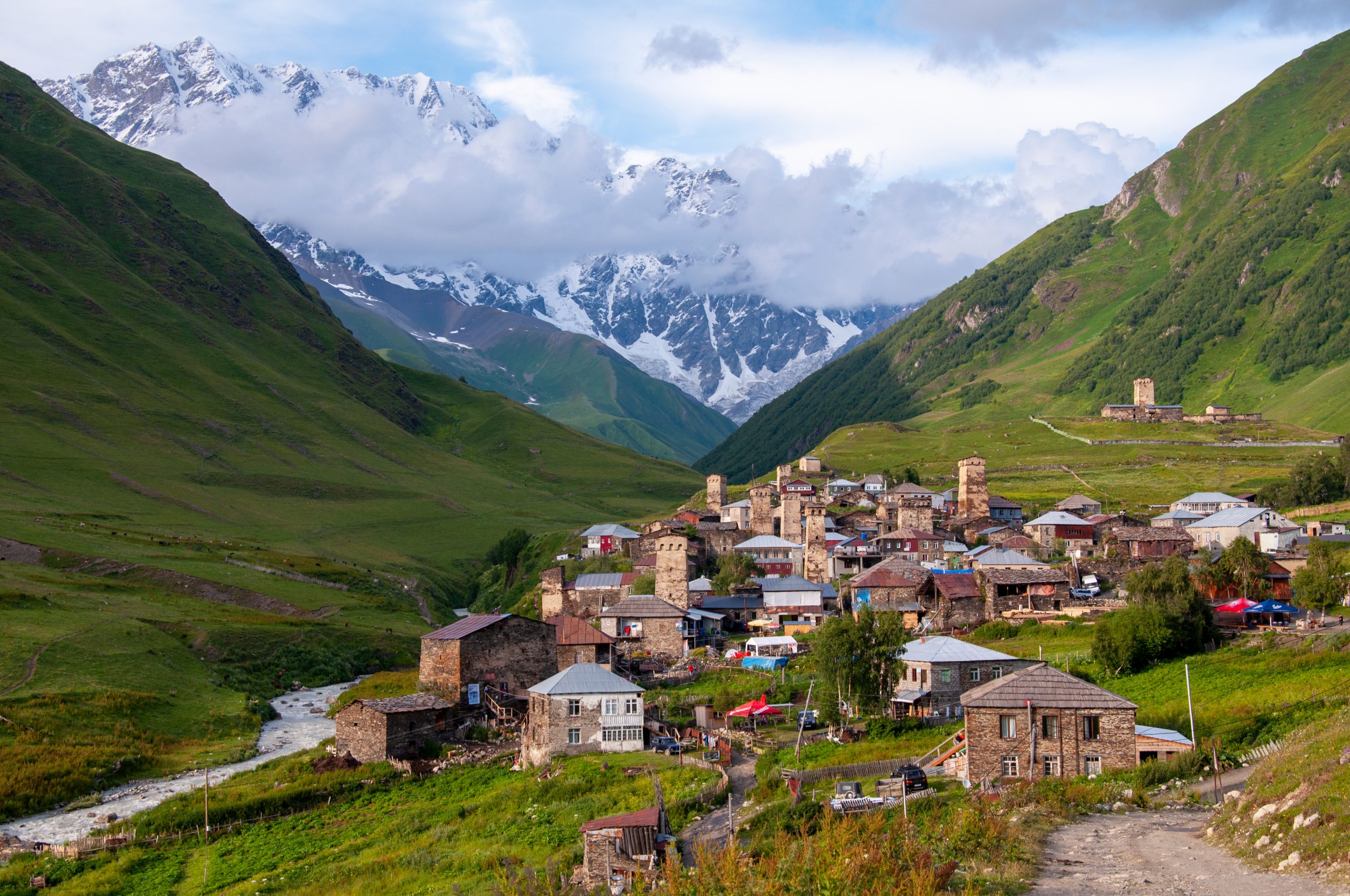
Svaneti, Georgia. Photo: Shutterstock.com
Fire destroys Abkhazia’s National Gallery art collection
Abkhazia’s National Gallery collection of around 4,000 artworks was severely damaged by a fire that ravaged the building on January 20 at night, with many artworks destroyed, writes OC Media.
The gallery’s director, Suram Sakania, stated that most artworks in the collection dating back to the 30s were either entirely destroyed or would require restoration.
“More than three hundred works by Alexander Chachba-Shervashidze, Varvara Bubnova, Evgeny Kotlyarov, and Olga Brendel were destroyed. And many others. We had kept them for 70 years”, said Sakania.
Abkhazia’s de facto Culture Minister, Dinara Smyr, stated that around 200 paintings by Abkhaz artists had survived the fire, including works by Viktor Scheglov, Khuta Avidzba, Sergei Sangalov, Sergei Gabelia, and Visarion Tsvijba.
Smyr added that none of Shervashidze-Chachba’s works survived the fire. The surviving paintings have been temporarily relocated to the National Library, awaiting restoration work. While the fire did not damage the first floor of the building, much of the artwork housed there sustained severe water damage during the efforts to extinguish the fire.
TV channel “Abaza” announced the cancellation of entertainment programs in response to the destruction of the paintings.
The President of Georgia, Salome Zourabichvili, reacted to the fire and called on the international community to protect the cultural heritage of Georgia “in the occupied territories”. “The fire that destroyed the Sukhumi National Gallery in occupied Abkhazia is a tragedy for all of us. I am sorry for what is a direct result of the neglect of cultural identity by both the de facto leadership and the Russian occupiers. I call on the international community to restore attention to the protection of our cultural heritage in the occupied territories,” the president wrote in a post published on social network Twitter/X.
Source:
-
OC Media, “Fire destroys Abkhazia’s National Gallery art collection”, https://oc-media.org/fire-destroys-abkhazias-national-gallery-art-collection/
-
Caucasus Watch, “Massive Fire in Sokhumi Art Gallery Destroys Over 4,000 Paintings”, https://caucasuswatch.de/en/insights/massive-fire-in-sokhumi-art-gallery-destroys-over-4000-paintings.html
Tense Standoff in Tbilisi as family faces eviction despite harsh winter conditions
On January 23, a tense standoff unfolded in Tbilisi between authorities, a family facing eviction, and protesters during a dramatic eviction on Kekelidze Street. Earlier, the family members living in Kekelidze N1 claimed that they had already paid more than they borrowed to the private debtor, including additional benefits, and they were not going to give up the apartment.
Hundreds demonstrated outside the Khatiashvili family’s home in Tbilisi as the National Bureau of Enforcement evicted the family for failing to pay their mortgage. The protesters had attempted to prevent the police from entering the Khatiashvili family’s flat. Several activists were also inside the apartment with the family. Publika reported that the Khatiashvilis and their supporters had blocked the entrance to their flat with furniture. Once the police broke in, they ordered the family and the activists to leave.
The police then used force to remove the Khatiashvilis and their supporters from the apartment, as a result of which several people were injured. Protesters gathered inside the apartment have accused the Enforcement Bureau of using tear gas as they were breaking in, accusations the bureau has denied, in turn accusing the protesters of injuring officers with pepper spray.
The Ministry of Internal Affairs accused the protesters of damaging a car belonging to the Enforcement Bureau, charging two people with damaging public property. The ministry stated that 18 others were detained on administrative charges of disobeying the police and disturbing public order. Among those arrested were Gela Mtivlishvili, the editor of Mtis Ambebi, and several activists.
Despite the protests, the cold weather, and snowfall, the Enforcement Bureau succeeded in evicting the Khatiashvilis. President Salome Zurabishvili criticised the eviction, stating during the protest that “evicting people in winter is prohibited in all European countries! Human rights and European values are nothing else!”.
As OC Media reported, the Khatiashvilis’ eviction was the first of three planned for this week that have attracted public attention. The National Bureau of Enforcement decided to postpone the eviction of another family scheduled for January 24, citing their vulnerability, including minors, and the need for additional time for negotiation. Civil society activists and citizens mobilised around the house to prevent the eviction, highlighting concerns over winter evictions. The Social Justice Center called on the government to suspend scheduled evictions during winter.
Sources:
-
SHOSHIASHVILI Tata, OC Media, “Police clash with protesters attempting to block Tbilisi eviction”, https://oc-media.org/police-clash-with-protesters-attempting-to-block-tbilisi-eviction/
-
Georgia Today, „Confrontation with police as family evicted on Kekelidze Street”, https://georgiatoday.ge/confrontation-with-the-police-as-a-family-is-being-evicted-on-kekelidze-street/
-
Caucasus Watch, “Tense Standoff in Tbilisi as Family Faces Eviction Despite Harsh Winter Conditions”, https://caucasuswatch.de/en/news/tense-standoff-in-tbilisi-as-family-faces-eviction-despite-harsh-winter-conditions.html
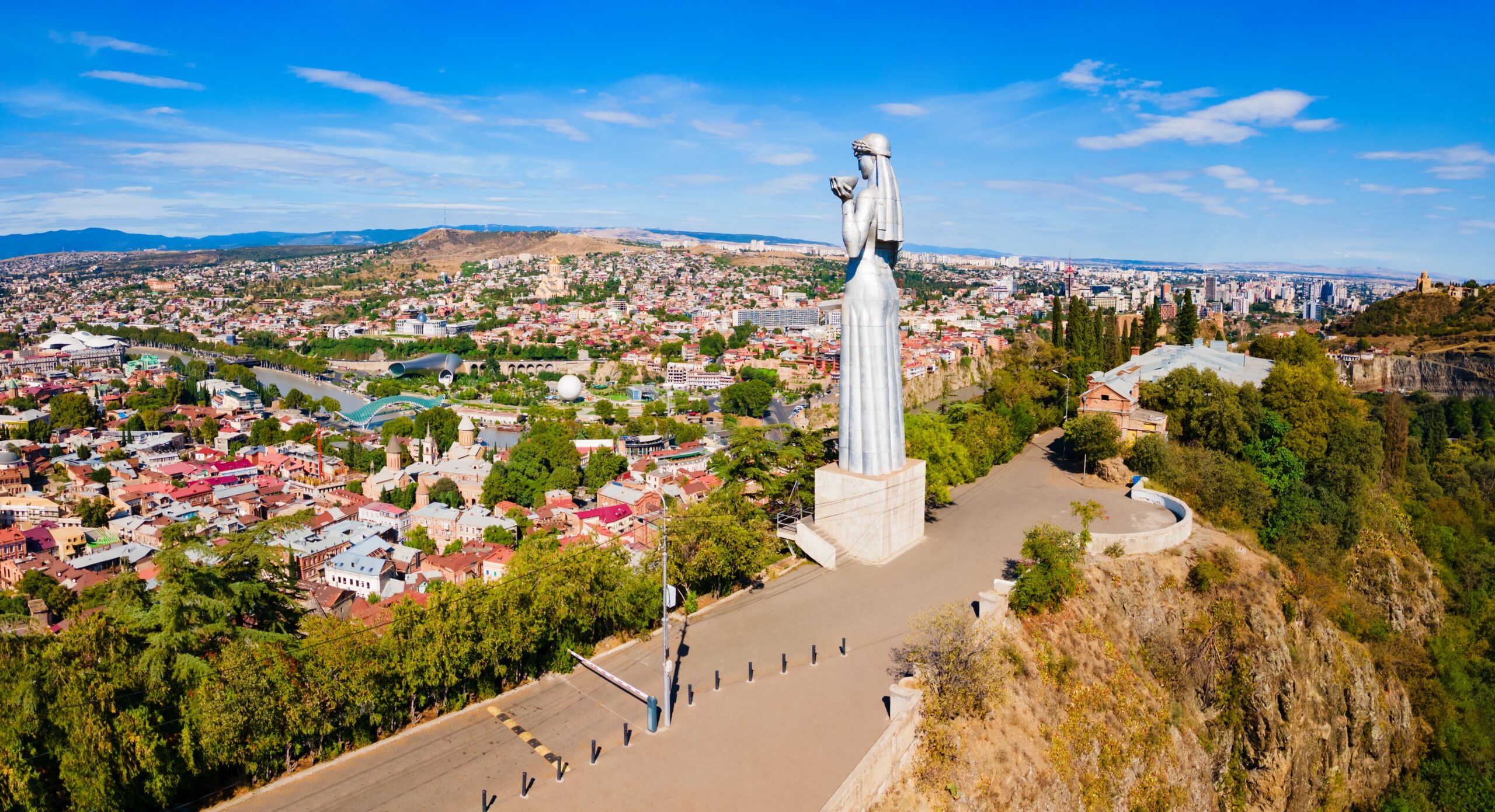
Tbilisi, Georgia. Photo: Shutterstock.com
Georgia and Armenia Sign Strategic Partnership Agreement
On January 26, Prime Minister of Georgia Irakli Gharibashvili announced the signing of a strategic partnership agreement with Armenia following a meeting with Armenian Prime Minister Nikol Pashinyan, the Armenian and Georgian government press offices reported.
In his remarks, Gharibashvili noted the two states had “always been strategic friends and partners”, adding, “this reality has officially been signed today”. “We discussed important matters concerning the existing relations, partnership, and cooperation between the two countries in all directions”, he said. We have a very good partnership, relationship, and cooperation in all directions and de facto; it can be said that we were already strategic friends and strategic partners. Today, it can be said that this reality has been formalised, and we officially signed a cooperation agreement on the strategic partnership”, the PM continued. Gharibashvili also called Georgia and Armenia “traditionally [and] historically very strong allies” and “friends, not just neighbours”.
During the meeting, the two prime ministers discussed various important issues concerning the bilateral relations between Georgia and Armenia, emphasising partnership and cooperation across all domains. Gharibashvili expressed satisfaction with the growing trade relations between Georgia and Armenia, noting that the trade turnover had reached one billion dollars. He highlighted Armenia as Georgia’s 6th trade partner and second-largest export destination, underscoring the significance of the economic ties between the two nations. Moreover, he emphasised the importance of Armenian tourists and visitors to Georgia, contributing significantly to the country’s economic development.
Armenian Prime Minister Nikol Pashinyan congratulated the Georgian people on their historic achievement of obtaining EU candidate status, highlighting its significance for Georgia and the entire region. He expressed gratitude to Prime Minister Irakli Gharibashvili and the Georgian government for hosting the 13th intergovernmental session of economic cooperation between Armenia and Georgia in Tbilisi. Pashinyan emphasised the importance of such meetings in fostering bilateral relations and cooperation.
Georgian President Salome Zurabichvili expressed regret over not being granted the opportunity to meet and properly host leaders of friendly nations during their visits to Georgia. President Zurabichvili highlighted the lack of notification from relevant agencies regarding high-ranking visits, meetings, or events in the country.
Sources:
-
Caucasus Watch, “Georgia and Armenia Sign Strategic Partnership Agreement”, https://caucasuswatch.de/en/news/georgia-and-armenia-sign-strategic-partnership-agreement.html
-
Agenda.ge, “Georgian PM announces the signing of a strategic partnership with Armenia”, https://agenda.ge/en/news/2024/262
Irakli Gharibashvili resigns as Georgian Prime Minister
On January 29, the Georgian Prime Minister Irakli Gharibashvili announced his resignation. He did not clarify why he was stepping down or who would replace him. Shortly before Gharibashvili’s resignation, the pro-government TV channel Imedi cited sources within the party as saying that the chair of the ruling Georgian Dream Party and former speaker of parliament, Irakli Kobakhidze, would soon replace him. They said an official announcement would be made at a Georgian Dream party congress on Thursday, February 1.
During his speech, Gharibashvili said he would take up Kobakhidze’s current position as chair of the party. Imedi reported that Kobakhidze would also occupy the post of political secretary of Georgian Dream. Gharibashvili noted that the party’s political council had “offered” him the opportunity to stay in the role until summer, “before the start of the election campaign”. “I chose to make this decision now. It is important that the next prime minister presents his team in time and forms a new government”, he said, adding that “there are many successful leaders in the team and they need to be given opportunities”.
Archil Talakvadze, Deputy Speaker of Parliament from the ruling Georgian Dream party, would like to thank Gharibashvili for his work. “In three years, he has managed to achieve difficult and important goals. These were Georgia’s progress towards European integration, ensuring economic development, reforms carried out in the regions, infrastructure projects and, in general, the renewal of the country’s strategic infrastructure,” he said.
According to Paata Manjgaladze from Strategy Aghmashenebeli, the Georgian Dream “had to admit the economic collapse in the country, and now it offers us another facade change.” “Now they tell us that Kobakhidze will take the driver’s seat and Gharibashvili will take a back seat. It is a sort of a game… Of course, for [either of] Iraklis, something will change, but nothing will change for the people. Even worse, because Kobakhidze has never had anything to do with the economy, jobs, or employment… Bidzina Ivanishvili is having fun… he needs this game for the elections to fool the people as if the new broom sweeps clean, but Kobakhidze is an old broom,” he said.
Levan Khabeishvili from the United National Movement believes that given changes are “connected with the so-called political intrigues of Bidzina Ivanishvili”. “… we should understand that today’s government does not serve the people; it is motivated to make Bidzina Ivanishvili richer, to make themselves richer, to build new residences, villas, not to serve the people,” he added.
Source:
-
OC Media, “Irakli Gharibashvili resigns as Georgian Prime Minister”, https://oc-media.org/irakli-kobakhidze-to-replace-gharibashvili-as-georgias-pm/
-
Civil.ge, “Domestic Reaction to PM Garibashvili’s Resignation”, https://civil.ge/archives/579612

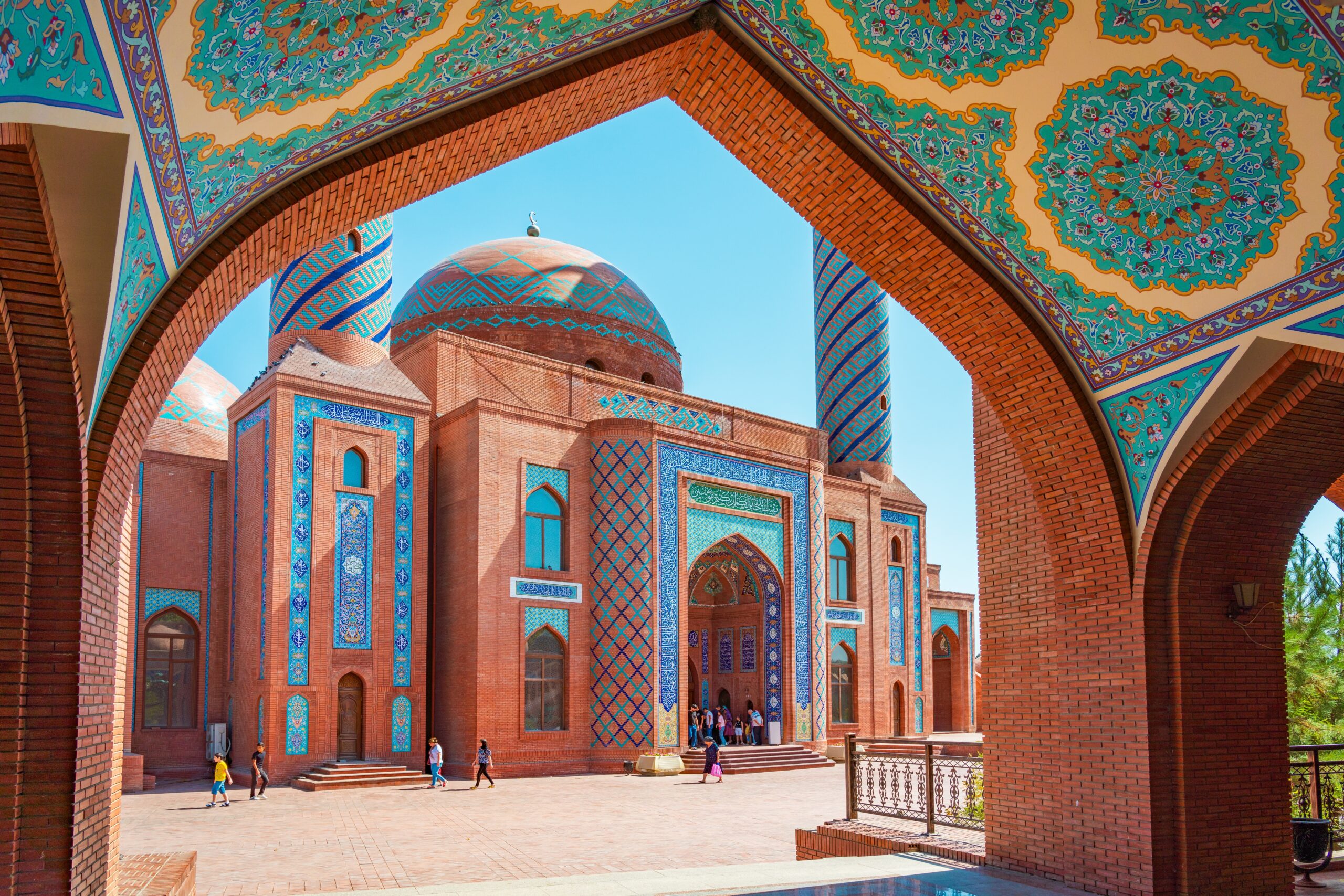
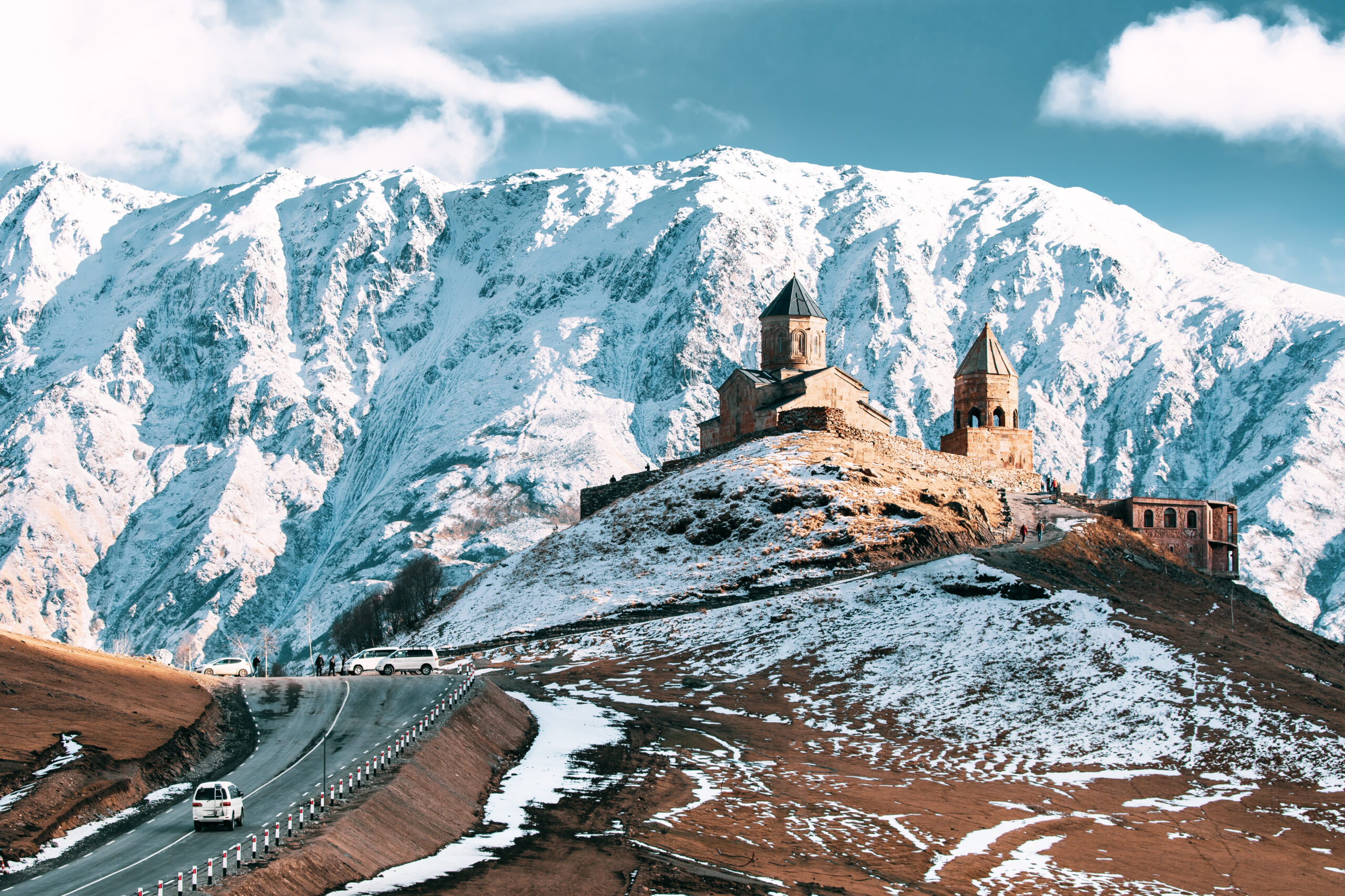
Contact us